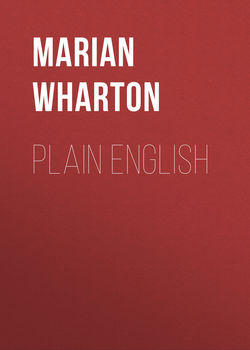Читать книгу Plain English - Marian Wharton - Страница 25
PLAIN ENGLISH
LESSON 3
INTERJECTIONS
Оглавление56. There is another class of words which we use with sentences, but which are really not parts of the sentences. They are emotional expressions which seem to belong more to the natural language than to the invented language. For example:
Oh! You hurt me!
Aha! Now I have you.
Oh, used in this way, is very apt to sound like a groan, and aha like a shout of triumph. These words do not really belong in the construction of the sentence. The sentence would be complete without them, but they are thrown in to express the emotion which accompanies the thought. We call expressions such as these interjections. Interjection is from the Latin and means literally thrown into the midst of. It comes from the Latin word inter, which means between, and the Latin verb jecto, to throw, so it literally means to throw between.
Some of these words imitate sounds, as for example:
Bang! There goes another shot.
Ding-dong! There goes the first bell.
We do not use interjections very frequently in writing on scientific subjects that express deep thought, but you will find them often used in poetry, fiction, oratory or any emotional writing. Therefore we have our definition of an interjection:
57. An interjection is an exclamatory word or phrase used to express feeling or to imitate some sound.
58. Following is a list of commonly used interjections. Use them in sentences of your own.
oh
hello
bravo
ahoy
aha
hurrah
bow wow
ssh
alas
hist
whirr
pshaw
fie
whoa
ding-dong
rub-a-dub
Exercise 6
Mark the interjections in the following sentences. Notice those which express emotion and those which imitate sound.
1. Oh! Is it possible.
2. Hurrah! We have good news at last.
3. Whirr! Whirr! goes the giant machine.
4. Come! Keep up your courage.
5. What! I cannot believe it.
6. Courage! We shall yet win.
7. Bravo! Let those words ring down the centuries.
8. Ding-dong! the bells ring out the hour!
